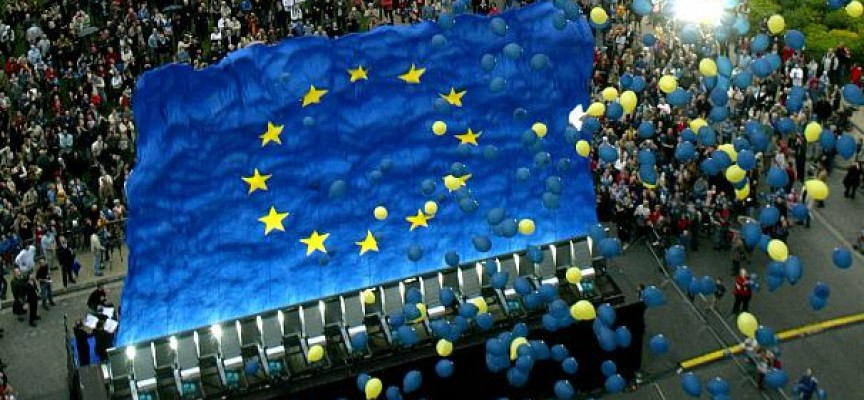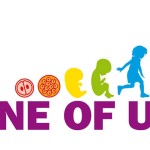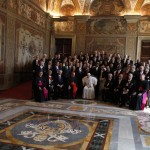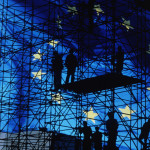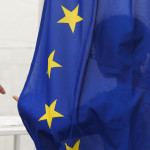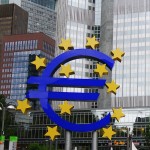In the book “Turbulent and Mighty Continent: What Future for Europe?” (published in Italy by Il Saggiatore in 2014) by Anthony Giddens, let’s take a passage from the introduction by the same author, who, in a few lines, points out the basic question already highlighted by Jacques Delors: are we at the end or at the transformation of the “dream” of the Founding Fathers? How to get out of a ‘paper’ European Union and enter what Giddens calls the “community of destiny”? Anthony Giddens, an English sociologist, directed the London School of Economics and sits in the House of Lords. His works include “Europe in the global age” (2007).
“Europe on the paper consists of a series of projects for the future and action plans drawn up by the EU. Many of these, however, remain such: aspirations that can be deepened and made effective, because there are not the resources needed to implement them.
Europe on the paper does not coincide with bureaucracy, although there are overlaps. The problem is not its procedural nature, but the fact that proposals and projects, no matter how ambitious, remain largely unfulfilled. The existence of Europe on paper is obvious, both inside and outside the EU, and therefore it affects its credibility. No one would take too seriously a person who makes big promises and then fails to keep them, and the same applies to an institution.
Nowadays almost all observers who write about Europe focus on the divisions that have occurred on the continent. I would like to diverge radically from this conventional perspective. I think that there are actually two ongoing processes, strictly intertwined: division and conflict, certainly, but also a real integration. Exactly pushed by the current crisis, the EU has discovered to be a ‘community of destiny’ as it had never been before. I mean that citizens and political leaders from all over Europe have become aware of their mutual interdependence. For the first time, there is a European political space. Despite all the tensions and protest movements, or thanks to them, Europe has gone far beyond the simple suggested political agenda, both in relation to its member countries, and, most importantly, with regard to its citizens.
The national elections reflect the European issues more directly than they have ever done before. It is hard to read a newspaper without finding an article on the EU (even in the UK). This step is crucial, because it is almost certainly irreversible.
For those like me who want to see the European Union survive and flourish, there is a simple question to ask and to try to answer to. Can the changes that take place in negative circumstances be turned into something positive?”. A few pages later Giddens writes: “For a while it will not be clear what kind of EU will emerge from the crisis. After all, at a certain point, you will still have to hold referendums all over Europe”.
Dal libro “Potente e turbolenta. Quale futuro per l’Europa” (ed. il Saggiatore 2014) di Anthony Giddens (titolo originale: “Turbolent and Mighty Continent”) riprendiamo un passo dall’introduzione dello stesso autore, che in poche righe tratteggia la questione di fondo posta a suo tempo anche da Jacques Delors: siamo alla fine o alla trasformazione del “sogno” dei Padri fondatori? Come uscire dall’Unione europea di carta ed entrare in quella che Giddens chiama “la comunità di destino”? Anthony Giddens, sociologo inglese, ha diretto la London School of Economics e siede alla Camera dei Lord. Tra le sue opere “L’Europa nell’età globale” (2007).
“L’Europa sulla carta è costituita da una serie di progetti per il futuro e piani d’azione elaborati dall’Ue. Molti di questi, tuttavia, rimangono tali: aspirazioni che possono essere approfondite e rese effettive, perché non ci sono i mezzi necessari per attuarle.
L’Europa sulla carta non coincide con la burocrazia, anche se vi si sovrappone. Il problema non è la sua natura procedurale, ma il fatto che proposte e progetti, per quanto ambiziosi, rimangano in gran parte disattesi. L’esistenza dell’Europa sulla carta è ovvia sia all’interno sia all’esterno dell’Ue, e dunque influisce sulla sua credibilità. Nessuno prenderebbe troppo sul serio una persona che fa grandi promesse e poi non le mantiene, e lo stesso vale per un’istituzione.
Oggigiorno quasi tutti gli osservatori che scrivono di Europa si concentrano sulle divisioni che si sono verificate nel continente. Desidero differenziarmi da questa prospettiva convenzionale in modo piuttosto radicale. Ritengo che in realtà ci siano due processi in corso, intrecciati tra loro: divisione e conflitto, certamente, ma anche un’integrazione di fatto. Spinta proprio dalla crisi attuale, l’Ue si è scoperta ‘una comunità di destino’ quale non era mai stata prima. Intendo dire che cittadini e leader politici di tutta Europa sono diventati consapevoli della loro reciproca interdipendenza. Per la prima volta esiste uno spazio politico europeo. Nonostante tutte le tensioni e i movimenti di protesta, o grazie a essi, l’Europa è andata ben oltre la proposta semplice agenda politica, sia nei riguardi dei paesi membri, sia – cosa più importante – nei riguardi sei suoi cittadini.
Le elezioni nazionali riflettono le questione europee più direttamente di quanto non abbiano mai fatto in precedenza. È difficile sfogliare un quotidiano senza trovarvi un articolo sull’Ue (persino nel Regno Unito). Questo passaggio è fondamentale, perché quasi certamente irreversibile.
Per quelli come me che vogliono veder sopravvivere e prosperare l’Unione europea, c’è una domanda semplice da porsi e a cui cercare di rispondere. I cambiamenti che avvengono sotto un segno negativo possono trasformarsi in qualcosa di positivo?”. Qualche pagina più avanti Giddens scrive: “Per un po’ non sarà chiaro che tipo di Ue emergerà dalla crisi. Dopotutto a un certo punto si dovranno comunque tenere dei referendum in tutta Europa”.

